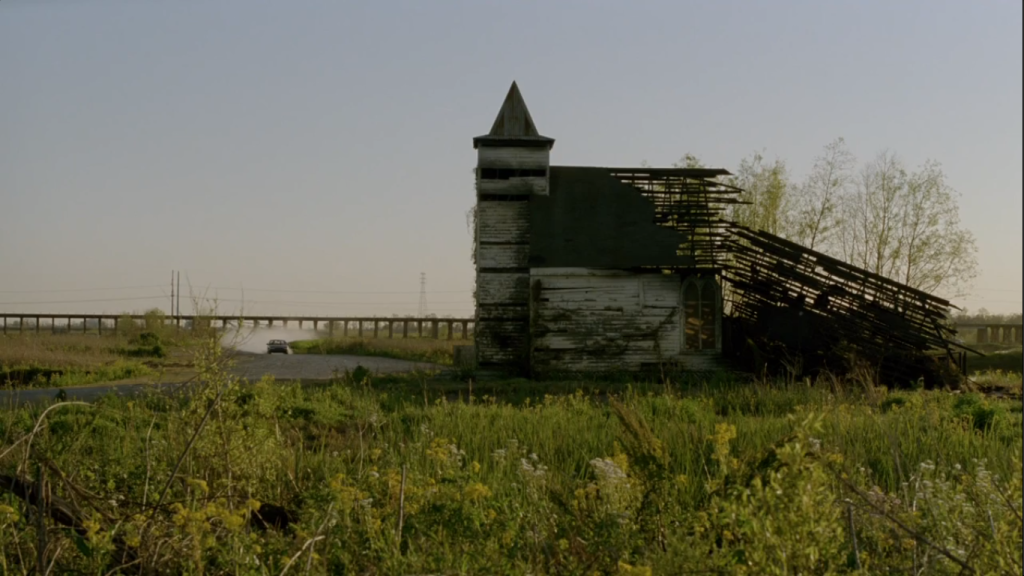October 30, 2020
Totalled Church

Happy families are all alike; every unhappy family is unhappy in its own way.
Leo Tolstoy
With apologies to the great Russian writer, this statement at the start of his masterpiece Anna Karenina gets it exactly the wrong way around. There is in fact a depressing sameness about unhappy families and the fall-out that results from this unhappiness.
Nowhere is this discovered to be more true than in the just released report concerning the former leader of The Crowded House, the network of missional churches in the UK city of Sheffield. (you can download the 98 page report here). Its family unhappiness – and Christian family unhappiness at that – is at a level that would make people weep.
Which, of course, it did. Many people. For a long time. Often alone, sometimes together, and always quietly and bitterly, knowing that their tears were an inconvenience to the barnstorming show that is Big Evangelicalism these days.
The self-declared “blood is not thicker than water” communities that were launched in Sheffield, and that took on an influence far beyond the size of the actual gatherings themselves, primarily through the influence of Steve Timmis and Tim Chester and their book Total Church, have been shown in this report to have created some of the most unhappy of family members of any church movement in recent evangelicalism.
Or at least so far. Who knows what lurks elsewhere in this Age of Exposure? What other Christian family group will come to be seen as desperately unhappy despite its present shiny face to the world? What other group has, like so many families in abusive situations not let on for years, lest shame come upon its members?
The glaring absence in the report is Steve Timmis himself, who refused to take part in it. Yet it is his presence that hangs heavy over it.
There would have been no The Crowded House without Steve, for all its good and for all its ill. He was the Saturnesque planet around which all other missional satellites revolved. He pulled in many a youthful wandering orb by his gravity and his gravitis to work and live and have their being there.
Yet once drawn in, it was especially hard to pull away. And as the report shows, hard to pull away from that deep gravity without spiralling into an aimless orbit. Many who managed to do so were then too scared or scarred to allow another ecclesiastical planetary system to draw them in.
Consequently, as the report shows, many ex-leaders and ex-members were unsure of themselves, suspicious of church, scared to open up to anyone too much again. When you lay your brokenness and sin at the feet of a church family that speaks grace, but struggles to offer it in the clinches, then you’re loathe to go there again with anyone.
Anyone lesser. For that is what The Crowded House, whether through the words it said, or the attitude it espoused, felt towards other expressions of church. Others were missing the mark, falling short of the gospel mark, the gospel community mark.
My own experience bears this up. When we were there The Crowded House never engaged with the other churches in the city of Sheffield, not once. And others made that same observation in the report.
So back to the report. It’s instructive that the completely anonymous quotes from the ex-members that litter the report could have been made by any number of people. I was quoted several times. I think.
So many of the quotes could have been five people, ten people, more. Nothing painful I read in the report that was clearly from someone I hadn’t known, sounded any different to my own experiences. Or the experiences of my friends.
What was that all about? Collusion? No, just unhappy families being unhappy in all of the same ways that unhappy families are. No iteration of The Crowded House over the course of two and a half decades came up with anything original in the pain that was expressed.
Of course there was a minority report. There always is. A smaller percentage of interviewees who said there was no problem at all and that all of the trouble was coming from the other side.
That’s hard to take seriously. Especially from members of a movement constantly told to “look into your heart”, when they were questioning a dubious decision.
Especially when so many ex-leaders who were scarred by it all held up their hands in guilt in the report, concerned about their own complicities when they were, for a brief moment in the sun, part of the favoured few.
Only the implacably zealous and the self-righteous see no grey areas in themselves. And the only ones to express such zealotry are the ones who are in denial that there was any problem at all.
Here’s the most astonishing aspect of the report’s findings: That a leader who had no qualms calling anyone who challenged him “a law unto yourself”; and who then ensured that narrative become the narrative to define you whenever you called out his inconsistencies, was singularly and utterly a law unto himself. With everything. At every turn.
Read the report. Whether it’s leadership decisions, fiscal decisions, trust of the building decisions, staffing decisions, eldership decisions, where time and effort should go decisions, where you as a family should go to serve in Sheffield decisions, whether you should take the term break off to go home to your family decisions, that leader was a law unto himself. No one made a decision – not an important one anyway – , without asking him.
And who was to tell in the end which decision was important? The constantly youthful influx of leaders floundered on the rocks of indecisiveness, too scared to make a decision that may be rescinded for a reason they knew not, or that had seemed insignificant to them at the time.
Perhaps it’s prophetic, but the first time I was ever called into the “front room” to receive a dressing down alone (and it was always alone), I was called “a law unto myself”. I was astonished, upset, unsure of myself and livid. At that point I said:
Why don’t you get ten people who have worked with you, and I’ll get ten people who have worked with me, and they can decide which one of us is a law unto themselves?
And now that’s what has been done. And not just ten of them. Dozens and dozens. And the conclusion, after countless hours of interviews with a national safeguarding organisation in the UK is that at, any given time in The Crowded House, there was only one person who was a law unto themselves, and that person was the leader.
And now that he is no longer part of The Crowded House, and now that the remaining elders have set the review in motion; agreed to its terms; allowed it to carry out its work; and finally published it on their website and written personal apologies to those affected; some happiness might return to that family some time soon.
And perhaps even more than some, as the bitter fruit of rigid conformity to one man’s will and decisions give way to an expansive flourishing for The Crowded House over the next twenty five years; a flourishing of such a depth and quality that these present pains will seem slight.
And that will be evidence not of unhappy law, but of joyous grace.
Written by
There is no guarantee that Jesus will return in our desired timeframe. Yet we have no reason to be anxious, because even if the timeframe is not guaranteed, the outcome is! We don’t have to waste energy being anxious; we can put it to better use.
Stephen McAlpine – futureproof
Stay in the know
Receive content updates, new blog articles and upcoming events all to your inbox.


